
Learning from the First time Mom – baby brain food and much more. Recently during a tele conversation with sister-in-law, I learned about her pregnancy. Such a happy and ecstatic news this was. I immediately switched to ‘do’s and don’ts mode’, without even realizing how irritating it gets for mom-to-be. She gets a heavy dose of ‘advice’ from every nook and corner. I went through that phase six years ago and remember the irritation of listening to all that friendly advice. So, thought instead of telling her what is good and bad, why not do something I am really good at – write. This post is all about ‘friendly advises’ to first-time expecting mommies.
Understand your body and it’s need
The first thing a mom-to-be must do is listen to her own body calls. I recall the days of my early pregnancy when a monthly scan reported deficiency of amniotic fluid. Being the first time, it was a very scary thing for us. However, immediate expert assistance and healthy nutrition overcame this discrepancy in no time. Most important of all is to have a positive mindset, understanding of your body and nutrition.
Our body goes through different phases of baby development, and it’s very important for us to understand its needs. A planned pregnancy starts with experts advising for folic acid, iron, and calcium in daily diet or as supplements. These nutrients are known for healthy and safe pregnancy.
Babies in the womb get their nutrition from mothers, it’s a known fact. But few nutrients are crucial for baby brain development like Vitamin E and DHA. Food which is rich in natural vitamin E and DHA are highly recommended. Macronutrients like proteins, carbohydrates, etc are also required during pregnancy under expert supervision and care. I was prescribed with a high protein diet in the second trimester of pregnancy, along with other nutrients. That’s when I realized why these nutrients are so crucial.
DHA – the omega-3 fatty acid docosahexaenoic acid (DHA) is critical for optimal brain health and functions. Researchers proved that DHA provides brain-boosting benefits in infants and aging adults.
Natural vitamin E is known to be vital for neural development and function. Without enough of this key nutrient, baby’s nervous system, brain, and muscles will not reach their full potential.
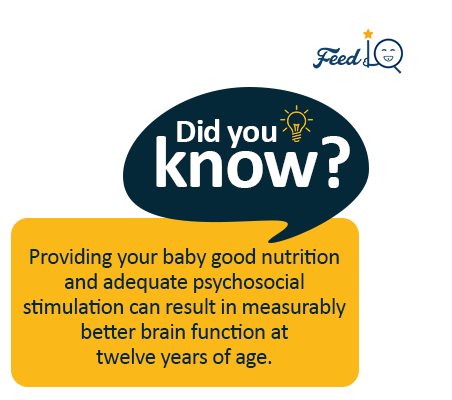
DHA and Natural Vitamin E – Baby brain food
In the previous post on stimulating baby brain development, I have elaborated the need for baby brain food during pregnancy. In mid-trimester Doctor advised to include nuts in the daily diet. I remember having a jar full of nuts-mix – walnuts, almonds, pistachios, and cashews. Keep having these ‘nuts-of-life’ in smaller quantity, over the day as nuts are a direct source of DHA.
[ctt template=”3″ link=”tKfkw” via=”yes” ]Natural vitamin E and DHA (omega 3 fatty acid) helps in brain development, enhance early learning and cognitive development in babies.[/ctt]
As I am not a huge fan of seafood, hence health supplements fulfilled my DHA needs. There is no harm in taking good health supplements under an expert’s supervision. Food might not fulfill the right need for nutrition and minerals our body needs, and some of these essential nutrients also get hijacked by the oxidation process. Hence it gets really important to know the source of nutrients and have a well-balanced diet during pregnancy.
Our body cannot make vitamin E on its own, hence babies will not get this crucial brain food unless you take it in diet or as supplements. Lack of natural vitamin E in body results in direct oxidation of DHA; which literally means losing all its goodness.
Sources of Natural Vitamin E
- Spinach
- Dark green leafy vegetables
- Broccoli
- Pumpkin
- Sunflower Oil
- Peanuts
- Seafood like salmon, oysters, shrimp, trout.
Sources of DHA
- DHA is found in seafood – salmon, herring, trout.
- Nuts – Almonds, Cashews, Pistachios, Walnuts.
My recommendations for expecting mothers –
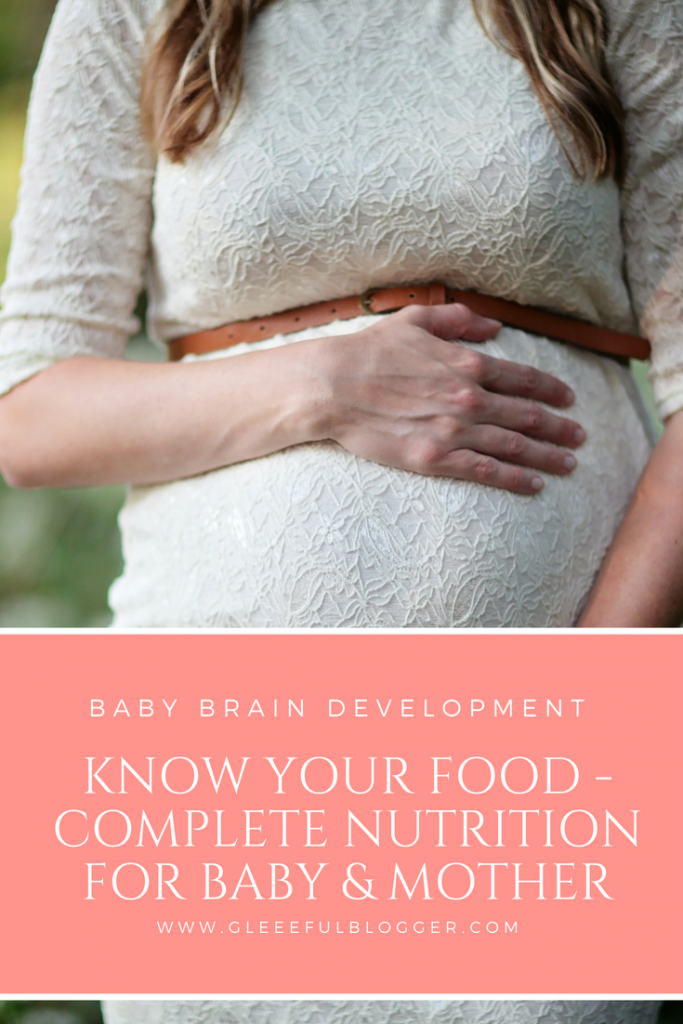
Motherhood is a blessing, a bittersweet experience for every new mom. A roller coaster ride which will bring all shades of emotions. As they say – ‘The moment child is born, the mother is born too’, it is so true. As a mother my learnings are –
- Baby brain development starts during pregnancy, healthy food intake with the right nutrients is essential.
- The connection between baby and mother enhances with breastfeeding, it also passes on antibodies and valuable nutrients to the baby.
- Vitamin E and DHA is a long-term The combo of these two bits help in brain development, immunity build-up, growth booster and much more.
- Baby and Mother need a combination of natural vitamin E and DHA to support brain development and boost early learning skills.
- Provide an age-based diet to child during the development phase. Experts advise on the requirement and quantity of nutrients intake during pregnancy.
- Healthy food may not always be able to suffice the nutrition requirements. Health supplements bridge the gap of deficiency.
- Bring a positive change in the daily diet chart, include all micro and macronutrients in food intake.
- Stay positive and enjoy this phase of motherhood.
The best thing you can do as a mother is – eat a healthy well-balanced diet during pregnancy. Include a healthy dose of brain food, natural vitamin E, and DHA along with other essential minerals and vitamins. Carry forward this healthy habit of eating nutritious diet even when the child is born. Include DHA, and other brain food in baby’s diet too.
A Healthy Mother is the Happiest Mother and Happy Mothers make Happy Babies.
COPYRIGHT NOTICE –
@Dipika Singh Unauthorized use and/or duplication of this material without express and written permission from this site’s author and/or owner is strictly prohibited. Excerpts and links used, provided that full and clear credit is given to Dipika Singh (Gleefulblogger) with right and specific direction to the original content.
DISCLAIMER –
The content is not intended as a substitute for professional medical advice, diagnosis, or treatment. Always seek the advice of your physician or another qualified health provider with any questions you may have regarding a medical condition.

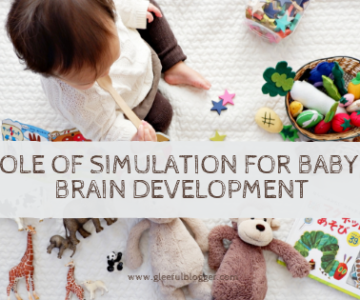
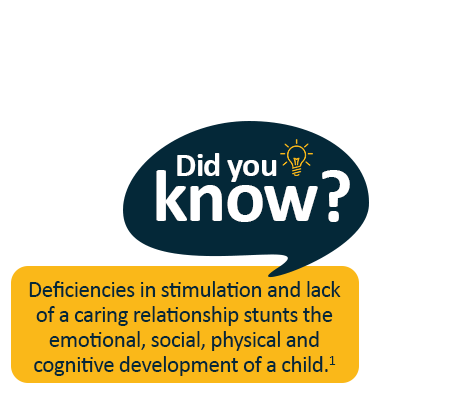

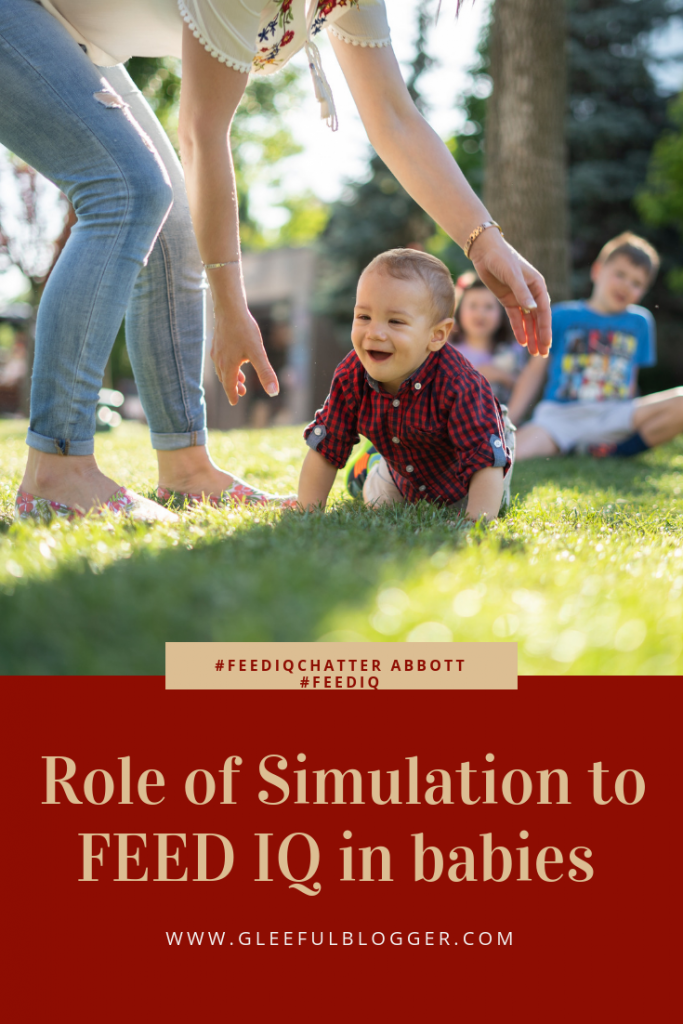


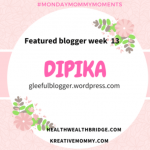


36 Comments
I love how you say healthy mothers are the happiest.. And a happy mom will surely ensure happy and healthy babies . Along with this amazing advice
Thanks Sabeeka.
Dipika, an all encompassing positive guide for first time mothers. Great job. Will share it.
Thanks a lot Anshu.
When I was expecting, I had no idea about Vit E and DHA and their role in a baby’s brain development. It was around the 2nd trimester when I read a blog on ‘Nutrition for expectant ladies’ and I found out the importance of various nutrients for mother as well as the baby in the womb. You have explained very well about these nutrients DHA and natural Vit E, their importace and sources, and this post will be really helpful for new mothers.
I agree with you Neha, we were ignorant then. Glad today we have tool to share our experiences and learnings. Thank you for stopping by.
Great tips Dipika every would be mom will find it useful
Thank You Akshata
What a wonderful post for expecting mums. Good nutrition and proper health care is so important for a healthy pregnancy
A healthy mom is a happy mom and a happy mom means a happy family is the best advice. New mom’s need advice and these are helpful tips.
Such helpful tips and ideas from a Gleeful mom. I’m sure these healthy suggestions will encourage them to intake the right amount of nutrients and essentials as mentioned by you 🙂
During both my pregnancies I had taken healthy supplements like folic acid, iron and calcium but no DHA.. Though I had healthy food but as you said healthy supplements do bridge the gap of any sort of deficiency… Very informative and this can act like a checklist Dipika!
I used to eat Spinach and Peanuts just because of the great tastes. But now when I know these two are enriched with Vitamin E, I am gonna eat more. Such an informative article it is..❤️❤️
Thank you so much, glad you found it informative.
Omega 3 fatty acids are sooo essential for brain development. And not just for kids it’s even recommended for adults and people of any age group. This was such an informative post
This is the reason why our elders always focussed on a good Rich and complete diet for to be moms as this is the nutrition which helps in the development of baby’s brain in womb. And so is thrtomportance of DHA and Vitamin E when a baby grows.
Its really important to eat healthy and lead a healthy lifestyle while expecting . Very nice guide.
Healthy mommy is really a happy mommy.. Awesome post..
Healthy diets and supplements are so important. This post is very helpful for the first timer. Thank you for sharing
Very helpful tips and idea for first time mother. Healthy diet and lifestyle much needed in this time..
Mother is born the moment the baby is born, so true. Thus the mother has to take care of two new borns…self and the kid. A very resourceful and handy post for all the first time mommies.
Very helpful tips, thanks for share
helpful informative post thanks for sharing
Knowledge is wealth and to help our brains process the knowledge best it needs all the nutrients it can. This is very nicely detailed post on what expectant mothers need to look for in a healthy diet.
I loved the way you explained the necessity of being a happy mom to have a happy baby and above that a healthy mom with a healthy baby..perfectly written
Must read post for all new mom or to be mom. I think I missed taking Vitamin E in my pregnancy and I will guide my sister for the same.
keep up good work
Gurjeet Chhabra
http://www.prismaroundgurjeet.com
Every kid is different n need of each kid is also different
This is such a potent article for the first time moms dear, I wish I has read this before I conceived my first child. Sharing it so that it reaches as many readers as possible.
Hahah! Would be moms get twice as much advice as students get before their board exams! ?
I knew DHA was very important for brain development but didn’t know about vitamin E and their sources! Great post
Very helpful article indeed, specially for new moms. Honestly speaking I was not aware of DHA during my pregnancy. Wish I could read such helpful article during that time
[…] boost cognitive development in a premature baby. Although, the breastmilk contains nutrients like DHA and natural Vitamin E for baby brain development, stimulation in the form of skin to skin touch while holding baby helps […]
[…] boost cognitive development in a premature baby. Although, the breastmilk contains nutrients like DHA and natural Vitamin E for baby brain development, stimulation in the form of skin to skin touch while holding baby helps […]
This what I’m really looking for. This is such a great informative post.
From now I’ll go ahead bookmark your site and come back later.
Thank you, glad you like it.
Glad you found this informative, thank you for stopping by
[…] the baby’s nutrition, starting with breast milk being the best during the initial months and with brain boosting foods once they start […]